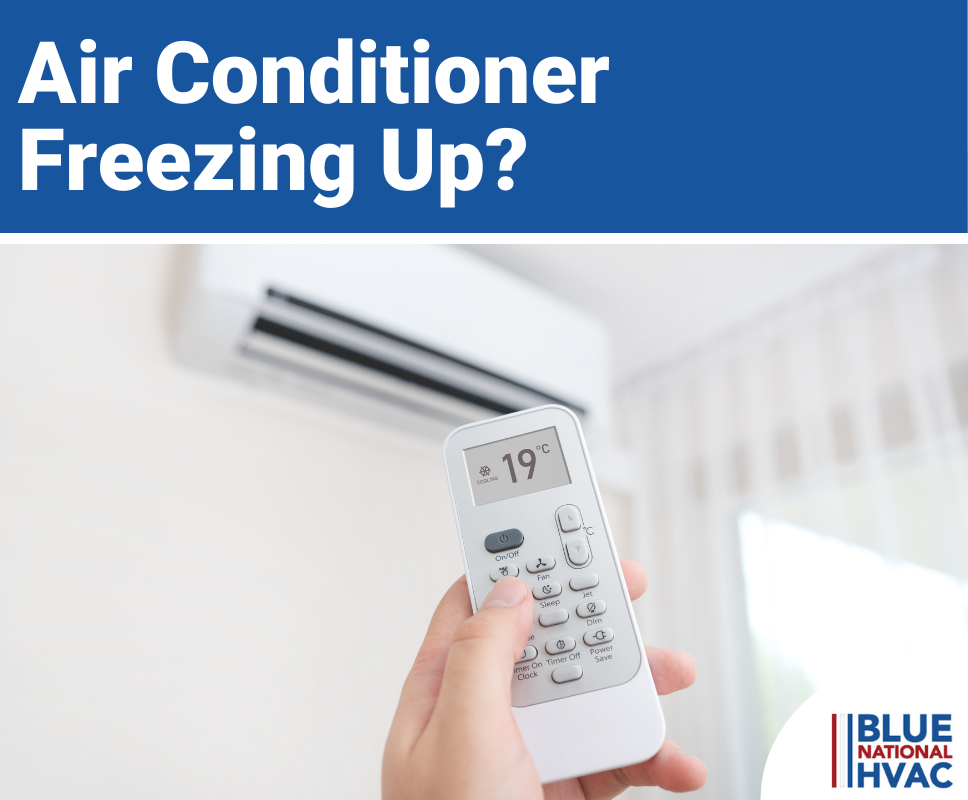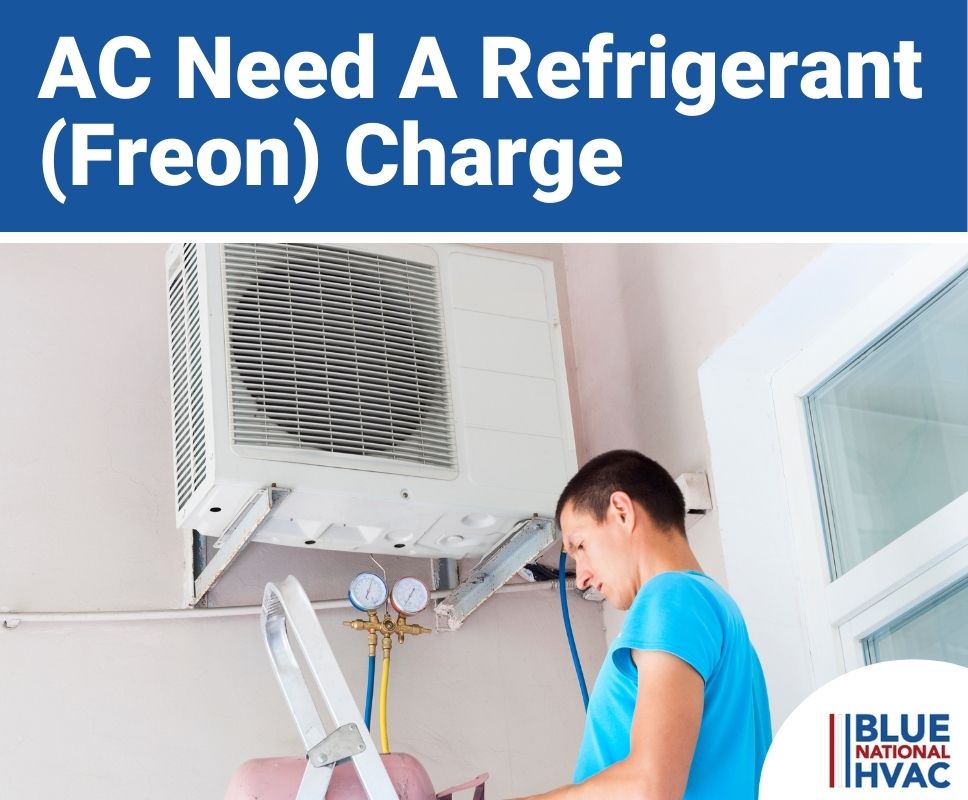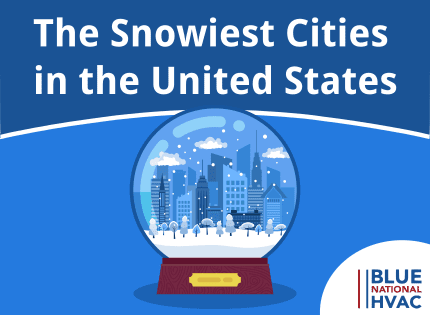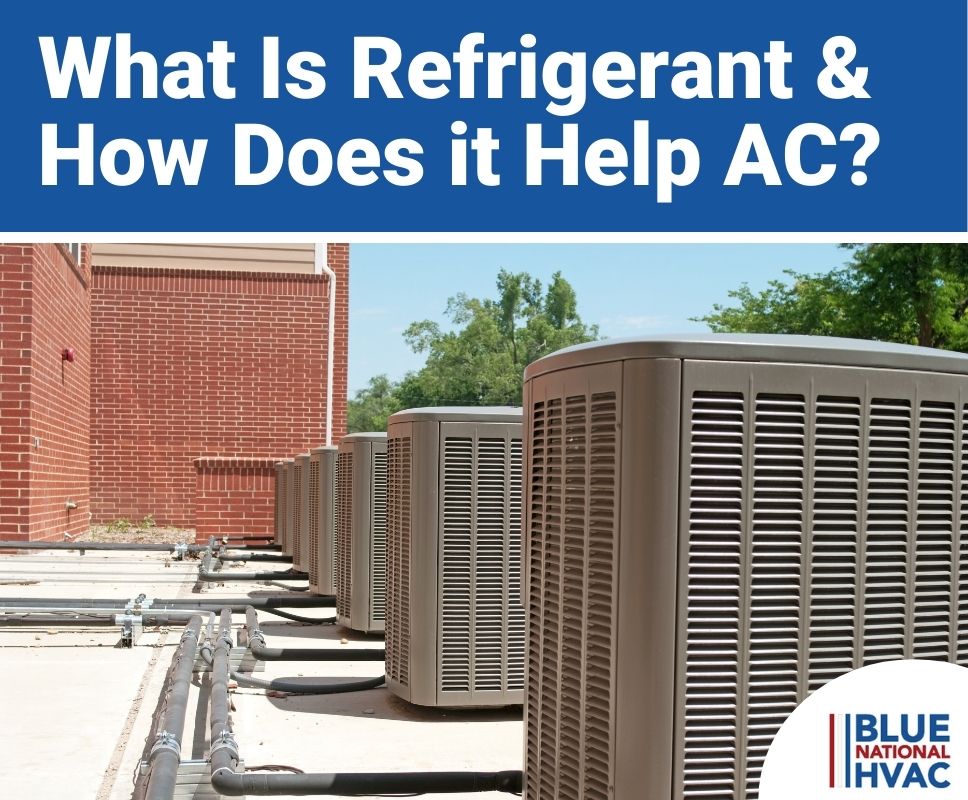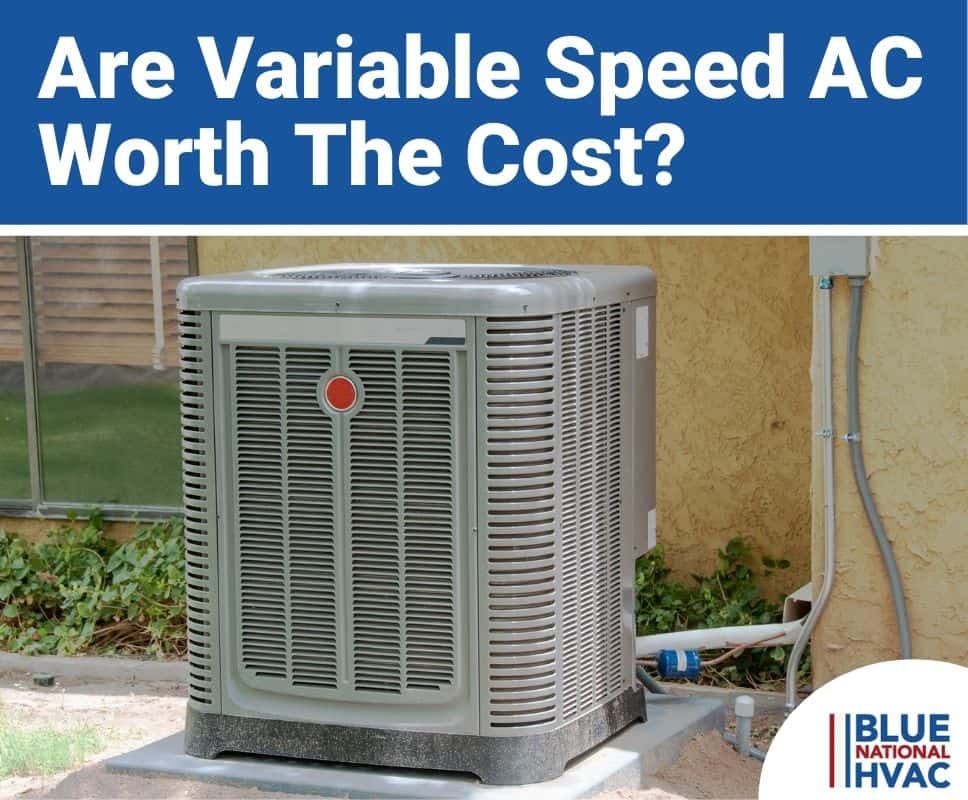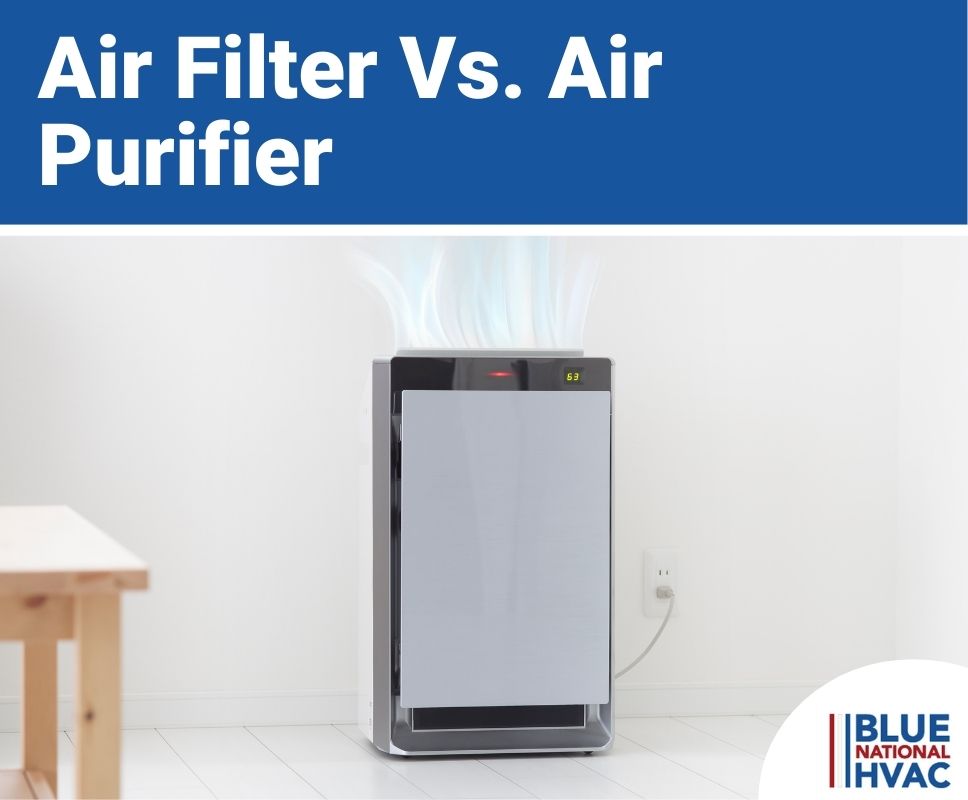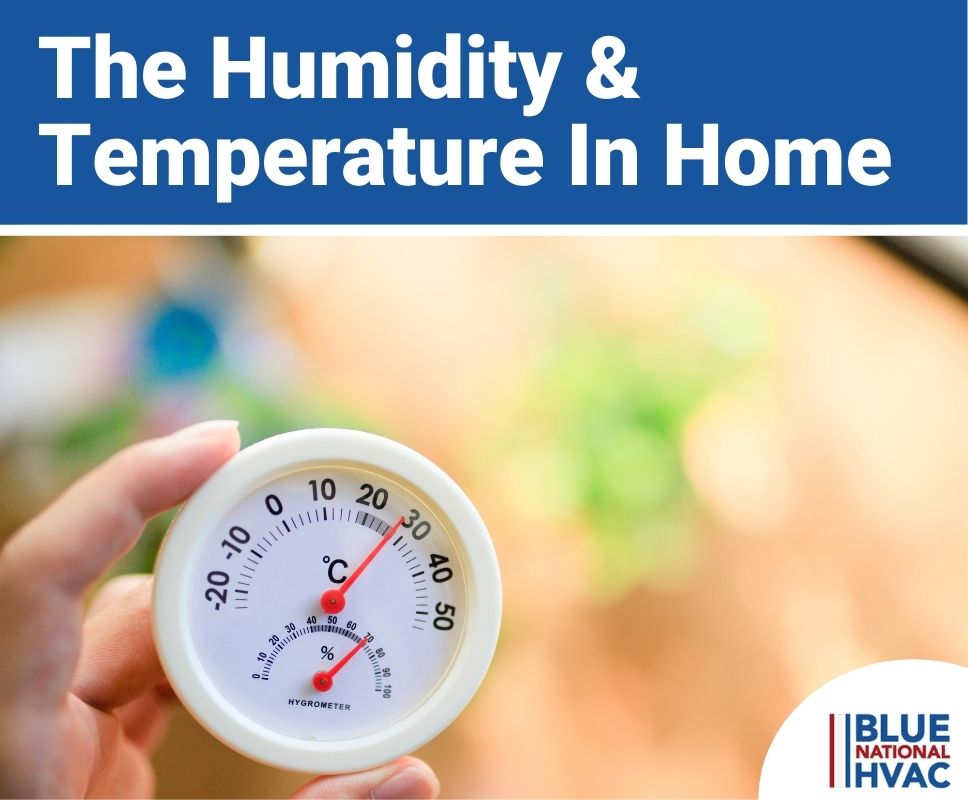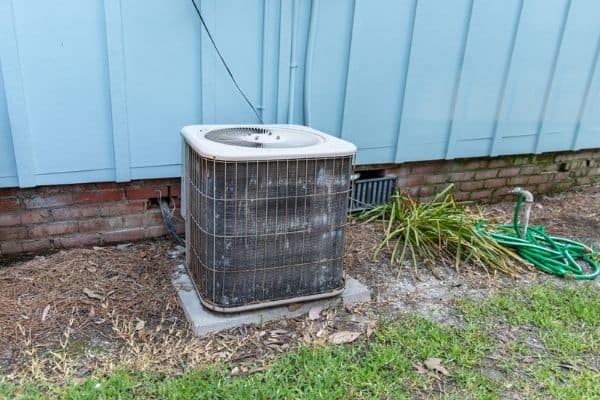Why Do Air Conditioners Freeze Up?
Air conditioners are fantastic at making homes cool in crisp even on the hottest days of the summer. However, sometimes things go awry, and the evaporator coils freeze over with a layer of ice.
An air conditioner making ice might sound like an added feature to your HVAC system, but trust us, it is not. This type of ice on your AC coils signifies a problem that you wouldn’t want to add to your beverage.
To understand why air conditioners can freeze up, let’s explain how AC systems work first. All air conditioners and heat pumps use a process called the vapor-compression refrigeration cycle to cool your home.
This cycle includes all the main components of your air conditioner:
- Indoor Unit (air handler)
- Evaporator coils
- Condensate drip pan and drain line
- Air filter
- Indoor fan blower
- Outside Unit (condenser unit)
- Condenser coils
- Compressor
- Outdoor fan blower
- Refrigerant lines
- Thermal expansion valve
The evaporator coils, compressor, thermal expansion valve, and condenser coils are connected in a closed loop with the refrigerant lines. Think of the closed-loop like a track the refrigerant circles around continuously.
The refrigerant is compressed and expanded during different stages in the cycle. When the liquid refrigerant is expanded (reduced in pressure) before entering the evaporator coils, it drops in temperature.
The refrigerant cools and warms from the expansion and compression due to the Joule-Thomson effect, a thermodynamic property that affects all solids, liquids, and gases.
When the refrigerant reaches the evaporator coils, it is now nice and cool and removes heat from the indoor air that’s blown across the coils.
Hot air holds more moisture or humidity than cooler air, and when it loses temperature, the vapor condenses into liquid on the evaporator coils.
After the refrigerant removes heat from the air, the refrigerant is compressed and reaches the outdoor condenser unit. It runs through the condenser coils and is cooled by the outdoor air and outside fan before it loops back through the thermal expansion valve and drops in pressure and temperature once again, repeating the cycle.
Air conditioners freeze when things go wrong with the evaporator coils in the vapor-compression refrigeration cycles. The coils can freeze over entirely and block airflow.
Frozen coils can be diagnosed by the warm air coming out of vents and by inspecting the evaporator coils themselves.
Here are the common reasons that cause AC coils to freeze over with ice:
Low Refrigerant
Refrigerant leaks are arguably the most common reason that air conditioner evaporator coils freeze over. If the evaporator coils develop a small pinhole leak, the refrigerant will leak out.
When the refrigerant escapes this hole, it rapidly loses pressure and falls in temperature, again due to the Joule-Thomson effect.
As water condenses on the evaporator coils near the very cold refrigerant leak, it will lose temperature as well and freeze. As it quickly turns to ice, other water around it will freeze as well. Sometimes, the leak is so prevalent, the entire evaporator coil cross-section freezes over and blocks airflow.
The evaporator coils are the most common coils that freeze over. The coils on the outside condenser coils can develop leaks as well. However, since AC units are usually running when it’s hot outside, the outdoor temperature is usually enough to prevent ice from forming on the outside condenser coils.
Clogged Air Filter
A dirty air filter in your air handler can get so clogged with dirt and dust that it blocks airflow. When the airflow becomes low enough, there won’t be enough heat along with it to prevent too much condensation from forming on the evaporator coils.
When the evaporator coils become too saturated with water, ice will begin to form and freeze your air conditioner.
If you notice low airflow and your AC unit struggles to cool your home, replace or clean your air filter first. If the air filter was causing the freezing, it should quickly resolve on its own if there’s just mild frost. However, if there is a ton of ice formed, you may have to turn the AC unit off and wait for it to melt.
Dirty Coils
A clogged air filter and dirty evaporator coils are often simultaneous issues. When the air filter gets too dirty and oversaturated, the excess dirt and dust will get trapped in the evaporator coils. All the dust and dirt on the evaporator clogs traps condensation and prevents it from dripping into the condensate pan.
All of the extra moisture and dirt creates the perfect environment for ice formation. The airflow gets blocked, and because there’s more water, it will freeze more quickly. Fixing dirty evaporator coils that are also frozen over is a lot of work. The coils have to be thawed, cleaned and inspected for leaks.
Failing Fan
A failing indoor fan can be a cause of frozen coils too. Just like a clogged air filter, a failing blower motor on the fan reduces airflow and causes a buildup of too much condensation on the evaporator coils, which can lead to freezing.
Malfunctioning Thermostat
A malfunctioning or failing thermostat can cause issues by not turning on the fan or running the AC unit for too long. Depending on how the thermostat fails, it could create a scenario that freezes your air conditioner.
Since thermostats control the air conditioner, it is vital to get it fixed or replaced right away. The thermostat is the “brain” of the AC unit, and without proper control, your AC unit will be dead in the water (or ice).
Broken Duct
If you have ductwork that collapsed or is blocked, the airflow in your HVAC system will be compromised as well. This lack of airflow causes air conditioning units to freeze up as there is not enough warm air to keep the air and evaporator coils at optimal temperatures.
High Relative Humidity
When there is high humidity outside, that means your air conditioner has to remove more humidity from the air. The excess moisture can oversaturate the evaporator coils and eventually freeze. Once the ice starts to form, more of it will come unless it is addressed.
If you live in a humid climate zone, a dehumidifier could benefit your air conditioner’s performance and your home’s comfort.
What Should You Do If Your Air Conditioner Freezes Up?
Frozen coils may not be apparent to homeowners at first. However, if your home is not being cooled well or there is little airflow coming from the supply air vents, you should check the evaporator coils.
If they are frozen, you should turn your air conditioner off but leave the fan running. The airflow will help melt the ice. Once you have the AC unit off, call an AC repair specialist right away. Frozen coils and other air conditioner parts can cause more severe and costly repairs if the problem lingers.
How To Keep Your Air Conditioner From Icing Up
A frozen air conditioning unit is an issue that needs to be addressed immediately. Besides not being able to cool your house because of the blocked airflow, it could cause irreparable damage to more costly components like the compressor.
Routine maintenance and a tune-up can prevent your air conditioner from icing over in the first place. With our twice a year preventative maintenance package, our trusty HVAC technicians will check the following to ensure your AC system is performing optimally:
Change Your Air Filter Routinely
SInce dirty air filters prevent airflow and cause frozen coils, it is essential to check your filter every one to two months. If there is a visible layer of dust on the filter, it should be cleaned and replaced.
HVAC technicians will check the air filter on every maintenance visit, but homeowners should check the filter themselves in-between visits as well.
Depending on the local outdoor air quality, amount of pets in the home, and the type of filter, it will need to be replaced or cleaned about every 1-6 months.
Clean The Coils
Keeping the AC coils clean is another great practice that will prevent your air conditioner from freezing over. When you routinely clean or change your air filter, the evaporator coils don’t have a chance to get dirty.
However, if they do get dirty, they should be cleaned. Check your evaporator coils and fins for dust and dirt each time you check or change the AC filter.
Ensure All Vents Are Open
If you have too many supply vents closed in your home, the airflow will be reduced. When you shut off supply vents to certain rooms, the airflow from the air conditioner still travels up the entire length of the air duct and pushes against the closed vent.
Closed vents puts stress on your air conditioner and reduces airflow, leading to freezing. To prevent this, leave your air vents open and move furniture away from them so the air can come out easily.
To prevent freezing, don’t close more than 2-4 supply vents in your home.
Check The Blower Fan
To get adequate airflow and prevent freezing, the indoor blower must be working correctly. Unless the fan isn’t turning on at all, it’s hard for homeowners to diagnose fan issues.
Our HVAC technicians will thoroughly inspect the fan on their routine maintenance visits and give it proper maintenance.
Get Your Refrigerant Levels Check
Refrigerant leaks are the most common culprit to AC units freezing up. To determine if you have a refrigerant leak, you have to hire an EPA-certified HVAC technician. Due to refrigerant’s harmful impact on the environment, strict environmental regulations are in place to prevent future leaks into the atmosphere.
Our EPA-certified HVAC technicians will check for low refrigerant levels during every maintenance visit. If they are low, they will inspect the system for leaks, repair any they find, and recharge the system with new refrigerant.
How Long Does It Take To Thaw A Frozen Air Conditioner?
The length of time it takes to thaw a frozen air conditioner depends on various factors. The amount of ice and the outdoor temperature will primarily affect the length of time it takes to melt.
At most, a frozen air conditioner could take up to 4 hours to completely thaw after turning the AC off. However, the melting process can be expedited by leaving the indoor HVAC fan running to bring warm air to the frozen coils.
When To Call An HVAC Specialist
If your air conditioning system is freezing up, it is best to call an HVAC professional for assistance and repair. Our HVAC technicians will quickly determine the issue that is causing the freezing, repair it, and get your thawed HVAC system back up and running in no time, so give us a call right away!

